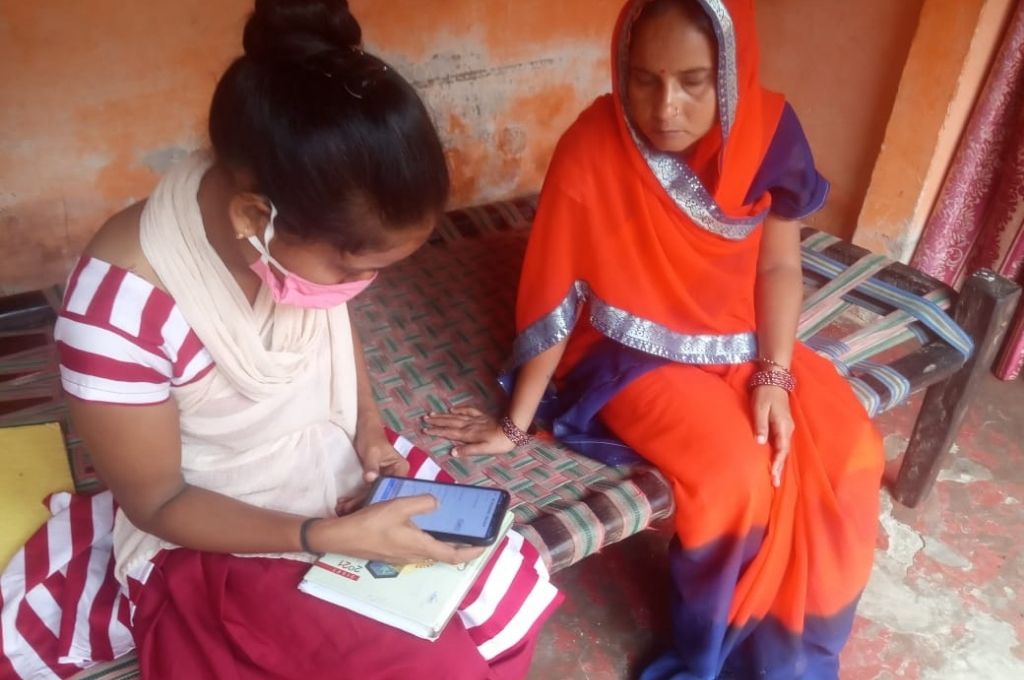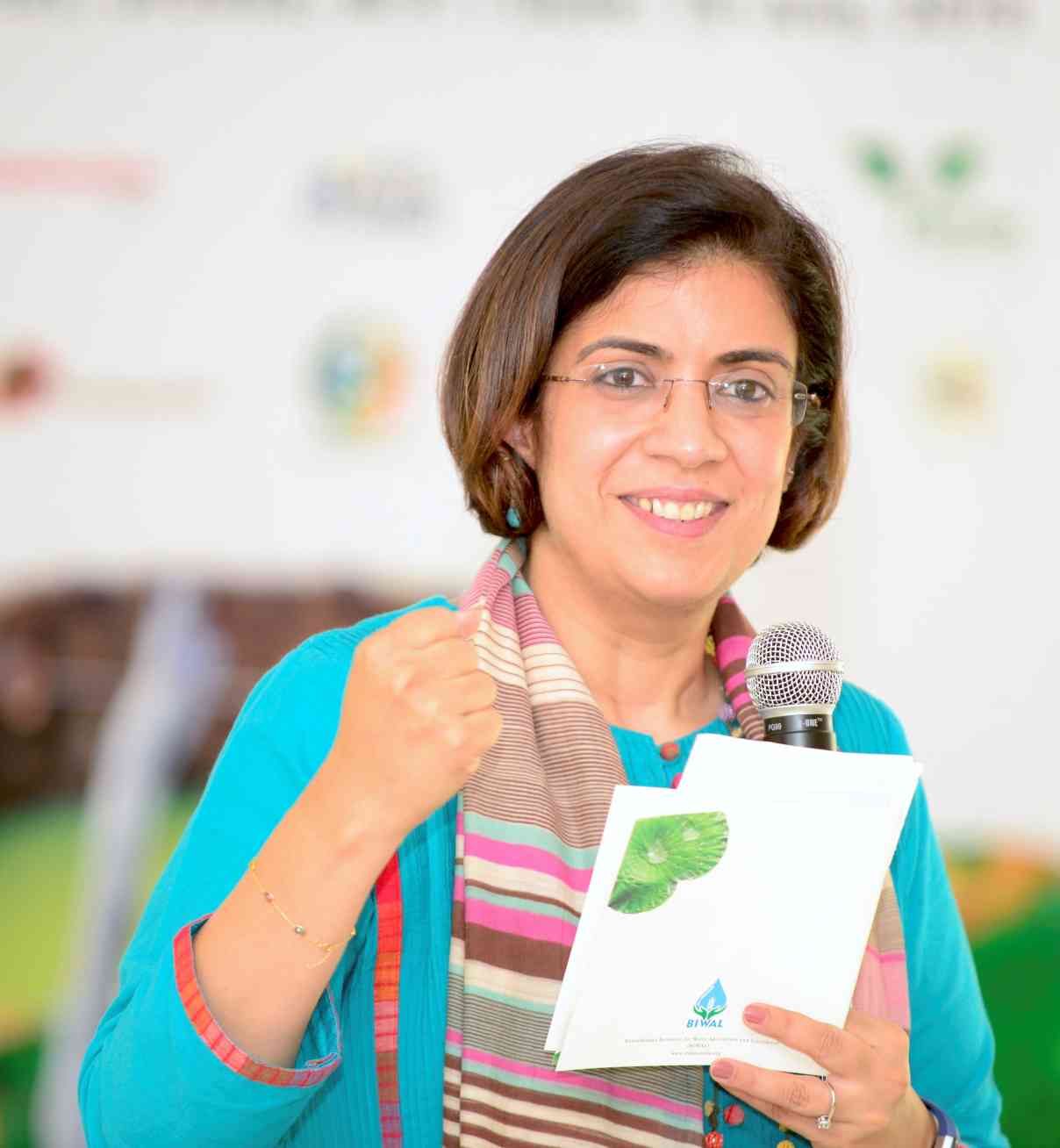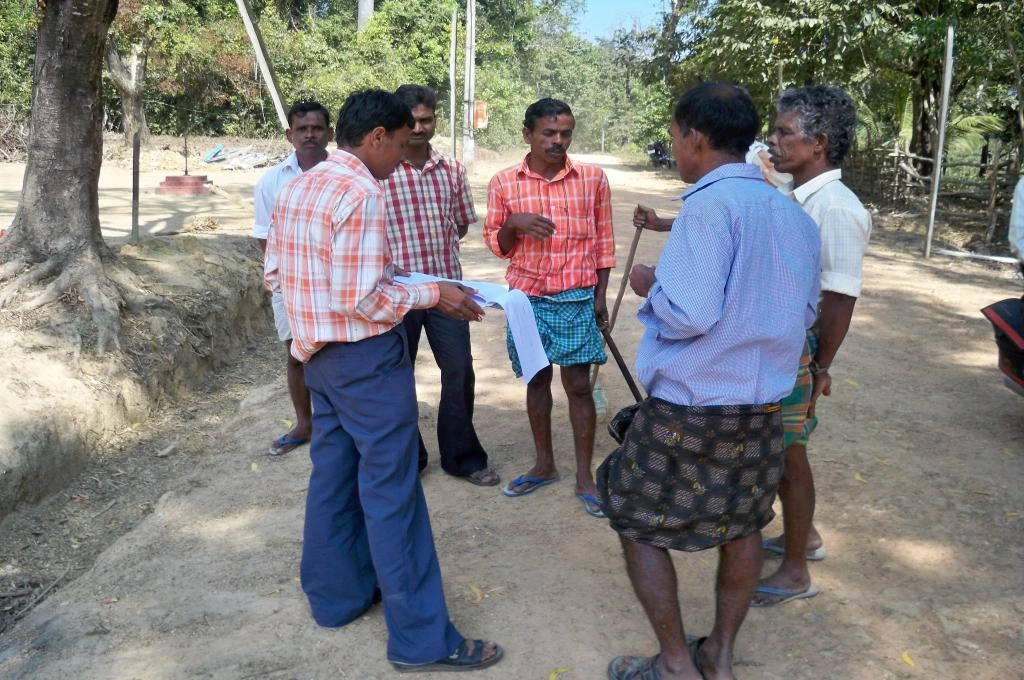As funders, we are articulate in our ambition for scale, but our vision for data needs to graduate beyond reporting and measurement. Insightful diagnosis or run-time decision-making are rarely considered as data goals while designing programmes. This is a paradox, as an imperative for systemic scale is that key stakeholders—programme communities, field staff, organisation leadership, local governments—have seamless access to reliable information that can help them make informed decisions. However, most data solutions still tend to have one primary user: the funder. And one primary purpose: post facto reporting.
COVID-19 forced our hand on data goals last year. We had no access to project field sites and yet we had to respond as the crisis was unfolding. We were in unfamiliar territory as we had to let go of traditional post-event reporting and instead build intuitive solutions that would work for frontline workers, government, and farmers. Information innovations under compelling circumstances for these three key stakeholders flipped our long-held beliefs on the core purpose of data.
Let data work for and at the frontline
At most nonprofits, programme teams aggregate data collected by their frontline workers. This is usually followed by a hierarchical and time-intensive process of data consolidation. This consolidated data is then used to report to funders.

With COVID-19 lockdowns, programme teams could no longer access the field. Frontline workers were the only link to communities across most programmes. As most of our frontline workers had access to smart devices, we developed and deployed rapid digital surveys to gauge what communities needed. Data that would previously be routed through programme teams now came directly from frontline workers. With data streaming in directly from the field, in near real-time, we could identify specific gaps with local teams that needed to be addressed in different geographies.
A hierarchy-free data architecture proved to be a boon in a crisis and ensured that our ground-level response was timely and appropriate.
We learnt that in Uttar Pradesh, the key challenge was that healthcare workers did not have access to safety gear, and vulnerable families did not have access to food rations and cash transfers. In Gujarat, on the other hand, food rations were near universally available, but farmers were unable to access mandis and were therefore concerned about the impact of this on their incomes.
Each state needed a different strategy. Frontline workers equipped with a basic smart device and trained online to conduct surveys could quickly identify local needs. A hierarchy-free data architecture proved to be a boon in a crisis and ensured that our ground-level response was timely and appropriate. But it is as relevant in normal times. Data’s role is to empower frontline cadres by generating timely, seasonal insights and allowing programmes to respond appropriately to local conditions.
Integrate data that exists
Every year, panchayats across the country prepare and submit plans under the Mahatma Gandhi National Rural Employment Guarantee Scheme (MGNREGS)—India’s flagship social investment to mitigate rural employment distress. A significant proportion of funds are directed towards improved water security and water conservation (nearly 75 percent as of 2019).
From 2017 onwards, the Government of West Bengal, took up an ambitious river rejuvenation programme called Usharmukti under the state’s MGNREGS cell. Usharmukti (which translates to ‘freedom from drought’) is being implemented in six districts, covering over 2,000 watersheds and 7,000 villages. Local nonprofits across key districts trained and supported panchayat and government functionaries to develop and submit project plans based on their watershed characteristics.


Once plans were approved and implementation started across a vast landscape, we soon realised that there was no way to track progress vis-à-vis original plans. While planning, budgeting, and implementation tracking is done on digital platforms set up for MGNREGS, the unit and data for each process rests in disconnected systems. This makes it nearly impossible for any state, district, or block functionary to reconcile the large quantum of data points across different systems to map completed works to the watershed under which they were originally planned. A lot of work was being done at the aggregate level. However, it was difficult to ascertain whether water conservation interventions at the village level were as per the watershed plan and sufficient to meet the water needs of the community.
Instead of creating a new data system, we piloted a decision support solution that integrated data across disjointed MGNREGS processes and helped visualise progress from submitted watershed plans to financial approvals and implementation. The goal was to make data actionable, not just reportable. A seemingly simple dashboard collated information from lakhs of data points. This helped government departments and local nonprofits identify execution gaps in specific watersheds and prioritise action.
Given the scale of MGNREGS (INR 1.11 lakh crore expenditure in FY 2020–21), informed planning and effective execution at the panchayat level can lead to tremendous impact on water security. A similar approach of integrating existing government data instead of designing new solutions across other flagship programmes can catalyse immediate outcomes as the country rebuilds lives disrupted by the pandemic.
Data works when it reduces risk for the user
Punjab contributes to 12 percent of the country’s total rice production. Farmers in the state believe that the traditional practice of flooding rice fields is critical for a healthy harvest. The state’s efforts to promote judicious water-use practices have had limited impact as farmers had no reliable way to gauge whether the irrigation methods prescribed were sufficient for a good harvest. These efforts would typically take the form of field meetings or large workshops, but with limited results.
Any change in practice, without a safety net carries with it a high risk of adverse outcomes.
As lockdowns made field extension work challenging, we supported the deployment of low-cost IoT-enabled soil moisture sensors in Punjab’s paddy fields. These sensors would take moisture readings every 30 minutes, relay them through a gateway to a machine learning platform that estimates whether the farmer needs to start or stop irrigating. Through SMS alerts in Punjabi, farmers could rely on near-precise information to irrigate their fields when moisture levels were low and to turn off irrigation when moisture was sufficient. This digital advisory solution helped reduce irrigation cycles and electricity usage by more than 40 percent. It also reduced input costs, creating additional income for farmers. As word of the sensors spread, so did demand from various districts in the state.
It is a widely held view that farmers are averse to changing traditional practices. What’s often missing in this assessment is that farmers bear innumerable risks. Any change in practice, without a safety net carries with it a high risk of adverse outcomes. Data tools that can calibrate specific solutions that are responsive to local crop, soil, water, and weather conditions can help India’s farmers transition to a remunerative and ecologically responsible future.
We hope our experience can start a conversation amongst funders to creatively envision the purpose of data and its fundamental user in development programmes. Data can empower frontline workers, governments, and communities to take smarter decisions. And when they make good decisions, the scale ambitions of development programmes start seeming more real and achievable. As funders, we have an incredible opportunity and obligation to change our one-way relationship with data. It is a tool that gains more power when it is distributed and in the hands of those whose lives we set out to change.
—
Know more
- Learn more about how you can get the most out of the data that your organisation generates.
- Read Geek Heresy to develop a clear-eyed view of the possibilities of technology in the social sector.
Do more
- Reach out to the authors at hindustanunilever.foundation@unilever.com to learn more about what they do.






